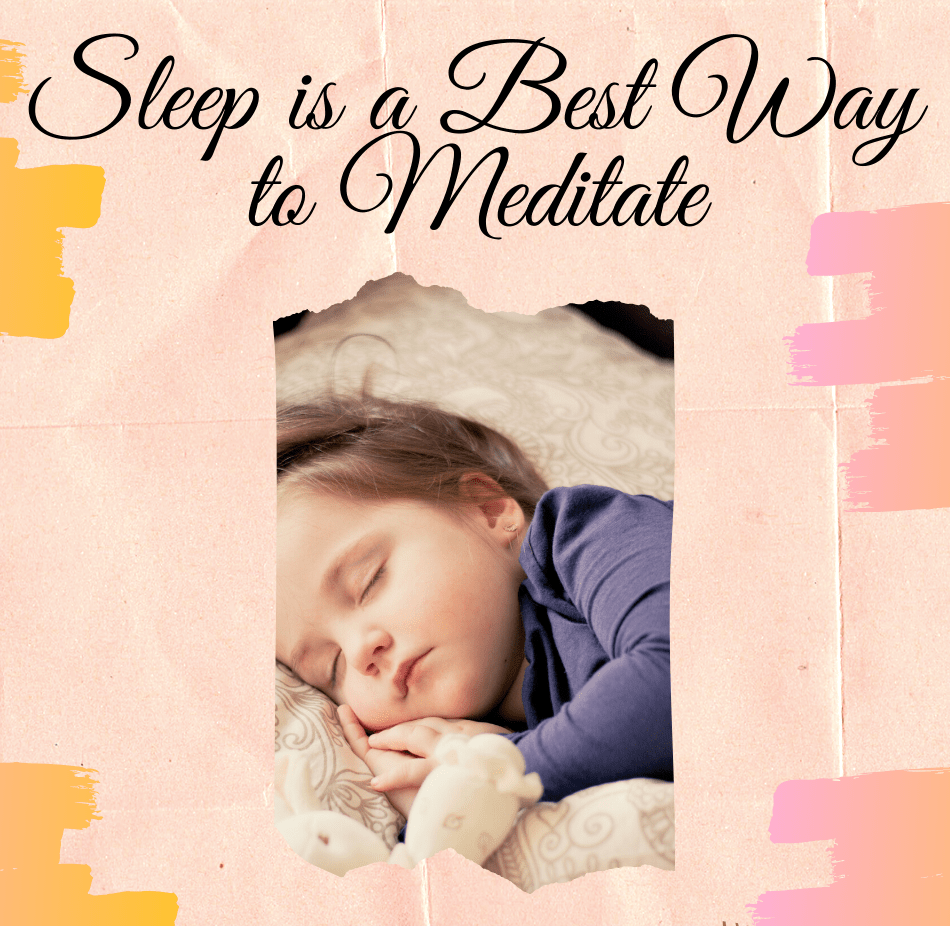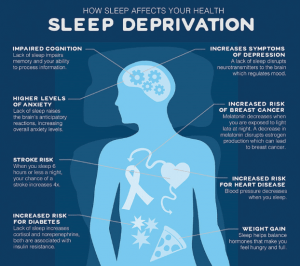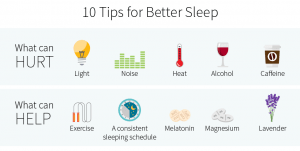
Sleep : Power of Healing
Sleep plays a very important role in our mental and physical health and the benefits of good sleep are bountiful. For example, a good amount of good quality sleep helps improve appetite control, lower glucose levels and maintain healthy looking skin. In addition, sleep plays a significant and important role in forming long-term memories.
However, we tend to forget how important sleep is and underestimate the need for good sleep. This is because we overload ourselves with work, things to do and forget to sleep the recommended number of hours per night, thinking that we can compensate by sleeping longer hours during the weekend, which is not the case. Poor sleep can increase stress, which in turn causes poor sleep at night: a vicious cycle.
The short-term and long-term effects of poor sleep are many. Irritation, lack of motivation, being too tired to work efficiently, exercise or eat healthily as well as the difficulty with learning are only some of the effects of a single night of poor sleep. And, over time, prolonged lack of sleep can leave you more vulnerable to anxiety, depression and raise the risk of some chronic health problems such as diabetes and heart disease.
 Poor sleep quality can result in
Poor sleep quality can result in
-
- Hormonal Imbalance
-
- Weight Gain
-
- Reduce problem solving skills
-
- Increased risk of Heart Diseases
-
- Type 2 Diabetes
-
- Poor digestion
- Lower Immunity
If your eating and exercise are on point, but you still don’t feel or look the way you want, poor sleep may be to blame. Here’s how to tap into the power of sleep and make rest a daily priority.
How to Improve your sleep quality ?
As we now know that Sleep plays an important role and we should pay attention to good quality sleep. Here are some tips which will help you to sleep better :
- Set a regular bed time – Make sure you go to bed everyday on same time, initially it might be tough but with time your body will adjust to set time and this will help to sleep better.Circadian rhythms are controlled by an area of the brain called the hypothalamus. Other influences include light (which sends a message to your brain that it’s time to wake up) and darkness (an indicator to your body that it’s time to release melatonin, a hormone that helps you fall asleep). Regular sleep patterns—waking up and going to bed at the same time daily—also keep your circadian rhythm functioning normally, helping to reduce the chance of sleep trouble such as insomnia. Incase you are suffering from Insomnia or not able to feel fresh when you wake up in the morning, Yoga Nidra can help you to feel relaxed and fresh. Yoga nidra or yogic sleep is a state of consciousness between waking and sleeping, like the “going-to-sleep” stage, typically induced by a guided meditation.You can practice this any time (avoid doing it just after the meal). You can also practice it at night, this practice also helps with improving sleep quality. But remember that Yoga Nidra Does Not Replace Sleep.
- Limit caffeine intake late in the evening – Caffeine is a naturally occurring substance that affects the brain and behaviour. It can be found in many different drinks and foods. This includes tea, coffee, chocolate and soft drinks. Caffeine is also found in some medications. Caffeine makes mind alert and blocks adenosine, your body’s natural sleep-inducing agent. In addition, it breaks your sleep, so that you wake up more often during the night.
- Turn off all gadgets at-least 30 minutes prior to bed time – These screens (blue light) interfere with the production of melatonin which ensures deep sleep and help to regulate metabolism.
- De-Stress your body & mind – Simple stretching, guided meditation, reading, Yoga Nidra, hot shower can release stress and activate calm down chemicals.
- Create a relaxing room environment – Make your bed room quiet, clean, organised, set an appropriate cool room temperature and make it dark as much as possible (you can use motion sensitive or dim light if needed).

Note : Few people worry about spending too much time in bed. An extra hour or two of stolen sleep on Sunday can feel like heaven after a long week of work and family activities. But spending more time in bed than your body need can also negatively impact your health.
Two important ingredients for better sleep :
- Magnesium: Magnesium is a powerful mineral that is instrumental in sleep and is a natural relaxant that helps deactivate adrenaline. A lack of magnesium can be directly linked to difficulty going and staying asleep. Magnesium is often referred to as the sleep mineral. Magnesium also fights acid buildup, neutralises toxins, calms sensitivity to pain, quiets nerves, builds strong bones and teeth and is essential for many other functions.
- Tryptophan: Tryptophan is an amino acid that when ingested gets turned into the neurotransmitter serotonin and then converted into the hormone melatonin. Both magnesium and tryptophan, are necessary chemicals for the production of serotonin.
Foods which help to improve Sleep quality :
- Almonds & Walnuts : Almonds contain the sleep-regulating hormone melatonin, as well as the muscle relaxation minerals magnesium, and calcium. Where as Walnuts are also a natural source of melatonin, serotonin, magnesium, calcium, potassium, and the amino acid tryptophan.
- Chamomile Tea: For centuries, this drink has been calming the mind and body of people around the world. And for good reason. Through its natural sedative properties, chamomile tea helps promote sleepiness.
- Warm Milk : Known for its sleep-inducing properties, drinking warm milk before bed is a tradition passed down from generation to generation. Milk is a rich source of sleep-promoting nutrients, including tryptophan, calcium, vitamin D, and melatonin. While research supports these nutrients for promoting a good night’s rest, there’s also a psychological link. The nostalgic memory of drinking warm milk before bed can play just as important a role in reducing stress and inducing relaxation.
- Cocoa Powder : Cacao is said to be the highest magnesium containing food on the planet. Raw cacao boosts the body’s natural production of serotonin, increasing our mood and ability to fend off stress.
Good Sleep means Good Health
Along with nutrition and exercise, good sleep is one of the pillars of health. You simply cannot achieve optimal health without taking care of your sleep.
Sleep well & Stay Healthy.
